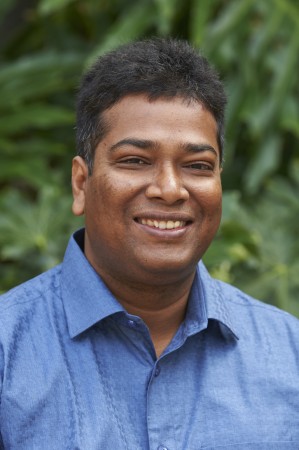Prof. Ferdous Sohel
Murdoch University, Australia

Ferdous Sohel received PhD degree from Monash University, Australia. He is currently a Professor in Information Technology at Murdoch University, Australia. Prior to joining Murdoch University, he was a Research Assistant Professor/Research Fellow at The University of Western Australia. His research interests include artificial intelligence, image processing, machine learning, computer vision, digital agriculture, and digital medicine. Prof Sohel is a recipient of several research grants worth more than $4.5 million. Notably, he is a recipient of the prestigious Discovery Project and Discovery Early Career Research Award (DECRA) funded by the Australian Research Council. He is a recipient of the Learning and Teaching grant on Work Integrated Learning and a Community grant for Invasive Ants detection and tracking from Australia’s national competitive pools. He has also won two WA State Govt. funded competitive grants on shark hazard mitigation and digital pathology to improve cancer diagnosis. He is a recipient of the VC’s Early Career Investigators award (UWA) and a best PhD thesis medal from Monash University. He has won several best paper awards. He is an Associate Editor of IEEE Transactions on Multimedia, IEEE Signal Processing Letters, and Computers and Electronics in Agriculture journals. He is a Fellow of the Higher Education Academy, a member of the Australian Computer Society, and a senior member of the IEEE.
Prof. Tony Quek
Fellow of Academy of Engineering Singapore
Cheng Tsang Man Chair Professor
ST Engineering Distinguished Professor
Director, Future Comms R&D Programme
Head of ISTD Pillar
Singapore University of Technology and Design

Tony Q.S. Quek received the B.E. and M.E. degrees in Electrical and Electronics Engineering from Tokyo Institute of Technology, respectively. At Massachusetts Institute of Technology, he earned the Ph.D. in Electrical Engineering and Computer Science. Currently, he is the Cheng Tsang Man Chair Professor with Singapore University of Technology and Design (SUTD) and ST Engineering Distinguished Professor. He also serves as the Head of ISTD Pillar, Director for Future Communications R&D Programme, Sector Lead for SUTD AI Program, and the Deputy Director of SUTD-ZJU IDEA. His current research topics include wireless communications and networking, 6G, network intelligence, non-terrestrial networks, and open radio access network.
Dr. Quek has been actively involved in organizing and chairing sessions and has served as a TPC member in numerous international conferences. He is currently serving as an Area Editor for the IEEE Transactions on Wireless Communications. He was an Executive Editorial Committee Member of the IEEE Transactions on Wireless Communications, an Editor of the IEEE Transactions on Communications, and an Editor of the IEEE Wireless Communications Letters.
Dr. Quek received the 2008 Philip Yeo Prize for Outstanding Achievement in Research, the 2012 IEEE William R. Bennett Prize, the 2016 IEEE Signal Processing Society Young Author Best Paper Award, the 2017 CTTC Early Achievement Award, the 2017 IEEE ComSoc AP Outstanding Paper Award, the 2020 IEEE Communications Society Young Author Best Paper Award, the 2020 IEEE Stephen O. Rice Prize, the 2020 Nokia Visiting Professorship, and the the 2022 IEEE Signal Processing Society Best Paper Award. He is a Fellow of IEEE and a Fellow of the Academy of Engineering Singapore.
Open RAN: From 5G Applications to 6G Research
Abstract
Today, mobile network operators source their entire radio access network (RAN) from one supplier or use multiple suppliers in different geographic areas. One of the key characteristics of Open RAN is to allow RAN components from different suppliers to be interoperable through open interfaces. Furthermore, Open RAN also allows the splitting/disaggregating of different network functions and the cloudification and virtualisation of network functions. While Open RAN is still at the early stage of development and deployment for 5G networks, there is nevertheless potential that it can be a fundamental part of 6G. In this talk, we will provide an overview of Open RAN and the pathway towards 6G. In addition, we will share Singapore’s first national Future Communications Research and Development Programme (FCP) to jumpstart cutting-edge communications and connectivity research, especially on Open RAN research and development.
